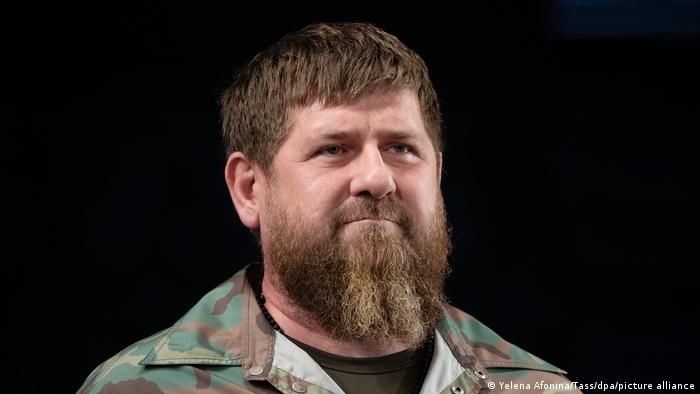
Chechen leader Ramzan Kadyrov says his three sons, aged 14, 15 and 16, will soon travel to the Ukraine front line to fight with Russian forces.
Kadyrov is a strong ally of Vladimir Putin, although has recently criticised Russian military leadership.
On social media, he wrote that a father should teach his sons how to protect their family, people and fatherland.
Russia has signed a UN treaty aimed at preventing children under the age of 18 from taking direct part in hostilities.
Using children under the age of 15 to participate in hostilities is considered a war crime by the International Criminal Court. However Russia does not recognise its jurisdiction.
In a long post on the Telegram messaging app, Kadyrov said his sons’ military training began when they were much younger, and the time had come for them to experience a real battle.
He also took aim at those “empty-worded” people who claimed the Chechen leader’s loved-ones were not taking part in the military operation in Ukraine.
The post was accompanied by a slickly-produced video of his sons firing various weapons at a training ground.
Chechen forces in Ukraine have been mocked by some for appearing to focus more on uploading glossy videos to social media than on taking part in front-line battles.
Kadyrov has ruled the southern Russian republic since 2007, when he was named the region’s president by Vladimir Putin.
It has been a period of relative stability in Chechnya, which fought unsuccessfully for independence for a decade.
But Kadyrov has been criticised for ruling with an iron fist, and allowing human rights violations to flourish.
Kadyrov is a fierce supporter of Vladimir Putin, and Chechen forces have been fighting in Ukraine since the start of the war.
However, after recent military setbacks in the Kharkiv and Donetsk regions, he criticised Russia’s military leadership, describing one commander as a “mediocrity” and bemoaning a lack of basic logistics.
He also called for Russia to take more drastic measures against Ukraine, including the use of a tactical nuclear weapon. The Kremlin responded that decisions like that should not be made emotionally.
Kadyrov’s criticism was in response to the retreat of Russian forces from the Ukrainian town of Lyman in Donetsk region – a major strategic setback for Moscow.
Capturing the town is important for Ukrainian forces, because it can be used as a foothold to reach further into Russian-held parts of Ukraine. It was also being used by Russia as a logistics hub.
The defeat in Lyman was also symbolic, as it happened just a day after a grand signing ceremony to annex four occupied regions of Ukraine – including Donetsk, where Lyman is situated.
Donetsk, Luhansk, Zaporizhzhia and Kherson regions all held so-called referendums on joining Russia last month, which were dismissed as a “sham” by Ukraine and its Western allies.
On Sunday evening, Ukrainian President Volodymyr Zelensky said Ukrainian troops had also recaptured some territory in the Kherson region.
Its Russian-installed head, Vladimir Saldo, described the situation there as “tense” and admitted Ukrainian forces had made breakthroughs.
None of the four regions newly claimed by Russia are completely under Russian control, raising the question of how annexation will work – particularly in Ukrainian-controlled territory.
The Kremlin says it will “consult” with residents of Zaporizhzhia and Kherson regions over where the borders should lie, suggesting that Russia may decide not to lay claim to the entire regions.
In Luhansk and Donetsk the situation is different. Just before the war began Mr Putin recognised the whole of those regions as independent republics, which have now – as Moscow sees it – voted to join Russia.





















